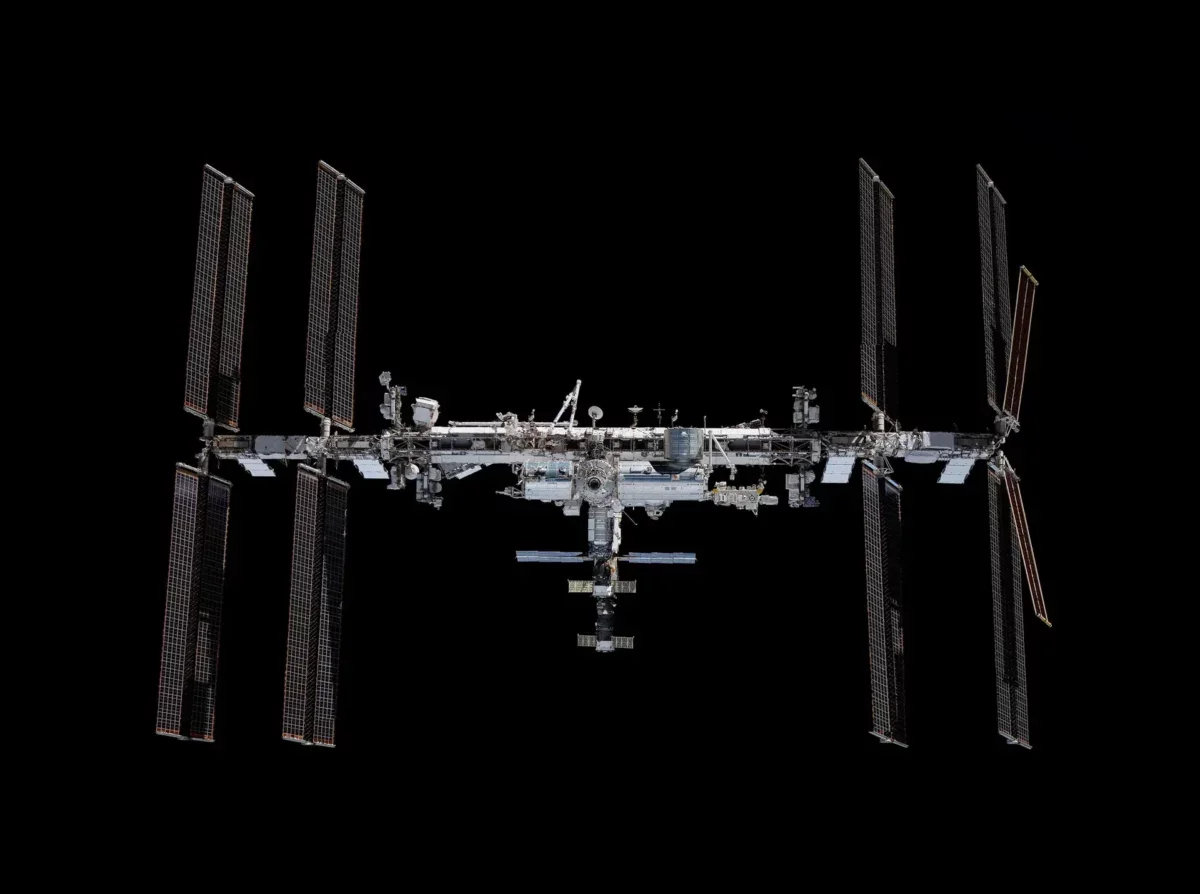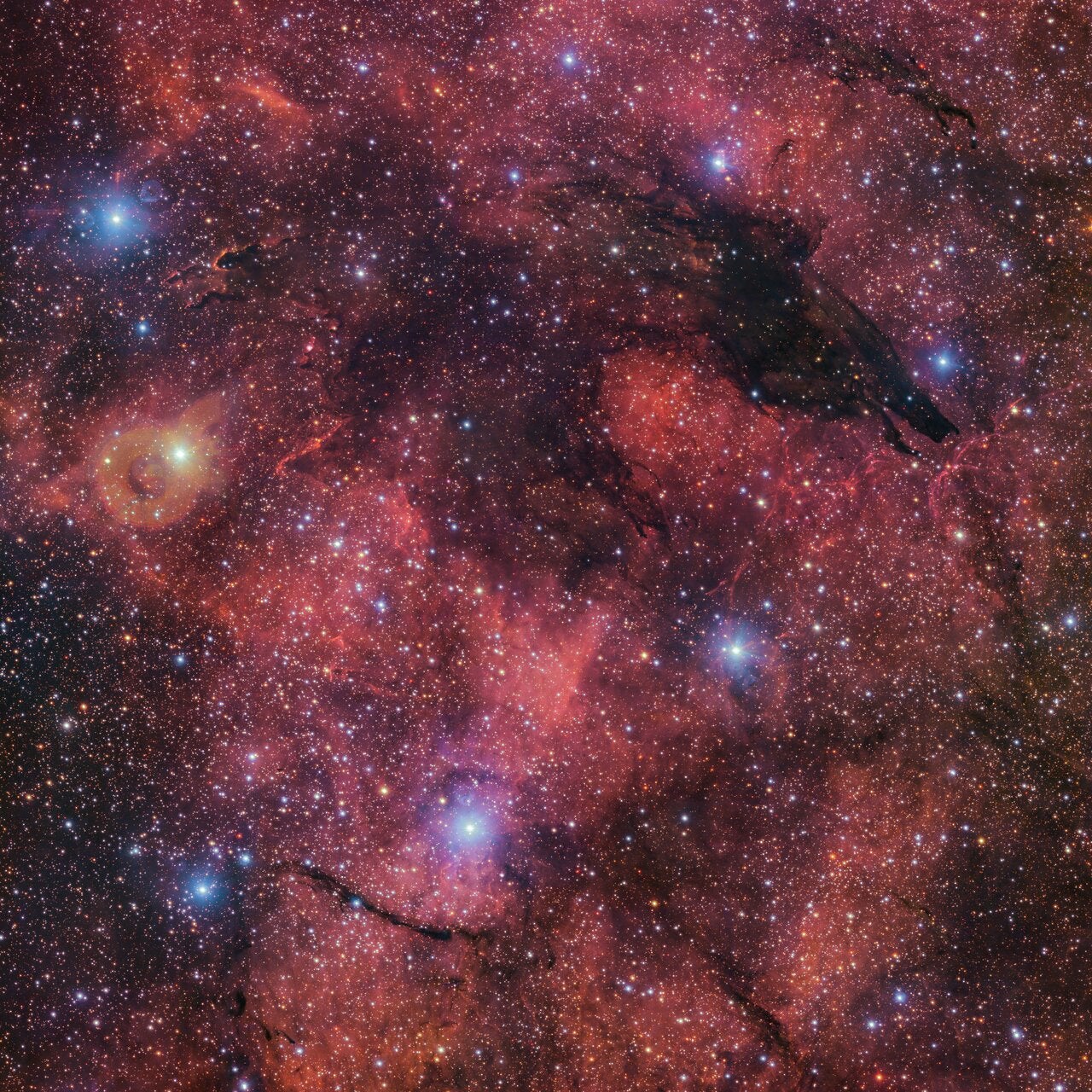
Based on an agreement announced in mid -April, Vast will have “direct access” to the National Lab International Space Station. Credit: NASA
Vast Space, one of the numerous commercial companies in the running to replace the International Space Station (ISS) following its expected Deorbit at the end of the decade, this week has signed key agreements that increase competition.
At 40th Space Symposium in Colorado, where the Haven-1 space station of Vast was on display, the company obtained agreements that gave him direct access to the ISS and three new customers for his Haven-1 laboratory, which was developed as the first research and production platform of microgravity on a commercial space station. The company is also developing Haven-2, its proposal to replace the ISS.
Direct access
Thursday, Vasto signed a strategic agreement with the Center for the Advancement of Science in Space (Casis), which manages the National ISS Laboratory in the US part of the space station. CASIS will collaborate in vast improvements proposed to technologies in space and orbital research. The idea is to open commercial and international access to an emerging economy of low -earth orbit (Leo).
“It allows us to make science fly, validate our technologies in microgravity and continue close collaboration with NASA, all essential as we will advance the design of our ISS replacement proposal,” said Max Haot, CEO of Vast, in the comments that accompany the announcement.
Vast said that the agreement also helps him to compete for the fifth and sixth mission of private astronaut of NASA (Pams), which the space agency officially announced last week.
The company last year revealed that he would make an offer for the missions and said Falcon 9 of Spacex and Dragon would like them, if he were selected. The vehicles are already scheduled to deposit Haven-1 in orbit and fly a crew mission to the station. In February, Vast pushed Haven-1-Che will present Starlink Internet-from August in May 2026.
The Casis agreement would allow Vasto to conduct research in orbit during the Pam. These flights would offer the company the opportunity to demonstrate its skills as it is responsible for the phase II award of phase II of the NASA in the low land of orbit, for which it will present Haven-2 to replace the ISS. A draft request for proposals (RFP) is expected this summer.
Nearby capacity
At the beginning of the week, Vast also revealed that he got three new Payload partners for the Haven-1 laboratory, which according to him is “already close to full capacity”.
Japan Manned Space Systems Corporation (JAMSS), Interstellar Lab and Exobiosphere will join the existing useful load partners RedWire and Yuri to install new modules on the orbital laboratory.
“These partnerships reflect a growing global recognition that microgravity is not only a research environment, but a catalyst for transformative discoveries,” said Haot. “With Haven-1, we aim to redefine what is possible in biotechnology and pharmaceutical products.”
Jamss specializes in the development and management of space systems and technology, in particular manages the Kibo module of the ISS, the largest of the station. The company will design and install a “multipurpose payload structure” to host microgravity experiments and smaller payload modules, such as devices for cultivating crystals in orbit.
Interstellar Labs, which builds autonomous greenhouse systems, will install Eden 1.0, a capsule designed for the search for the effects of microgravity on the growth of plants. The device is equipped with cameras and sensors that transmit data in real time on earth, allowing researchers to recreate experiments on the ground. Eden 1.0 is a spin-off of the company’s food production system, which previously won the NASA Deep Space Food Challenge.
“It is a crucial step towards our greatest vision of providing advanced bioregenerative vital support systems for future habitats on the Moon and Mars,” said Barbara Belvisi, founder and CEO of Interstellar Labs.
The exobosphere based in Luxembourg, meanwhile, develops drug screening platforms in space, in which the company can conduct experiments that are not possible on Earth. It will install the high -performance orbital drug screening device, designed to accelerate cell growth and observe the behaviors not observed under normal gravity. The company will share its results with pharmaceutical, biotechnological and healthcare companies to help them develop therapeutic for terrestrials and astronauts.
“Microgravity gives us a new powerful point of view to explore the disease at cellular level,” said Kyle Acierno, CEO of Exobiosphere. “We aim to drastically accelerate innovative therapies and remodel the way we approach health care on earth and beyond.”
Note of the editor: This story originally appeared on Fly.

